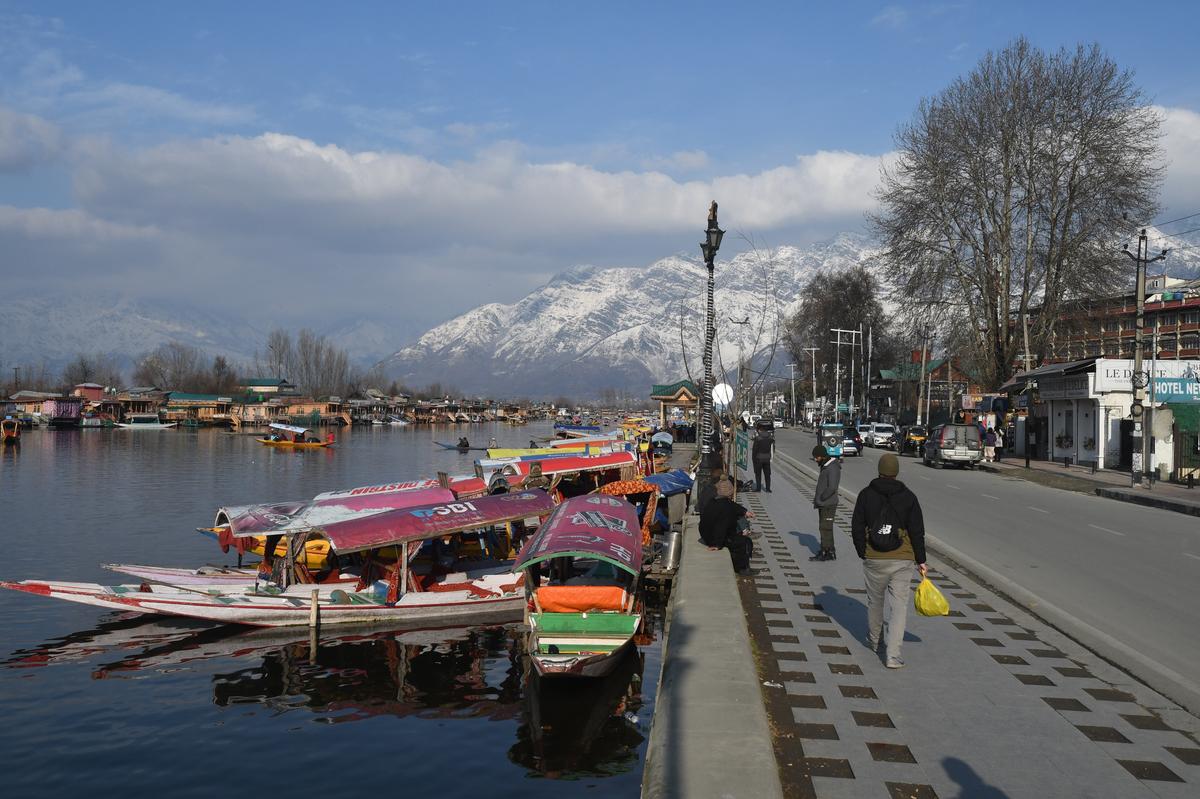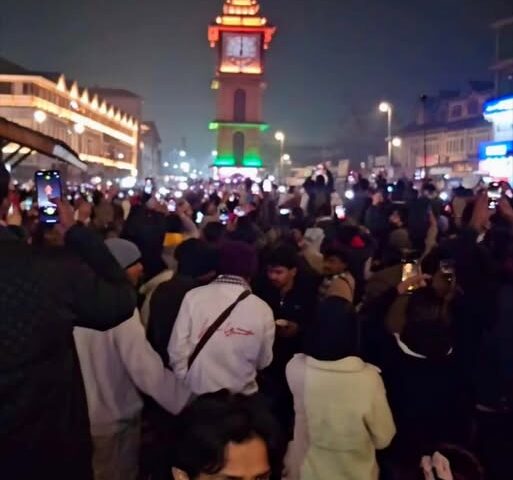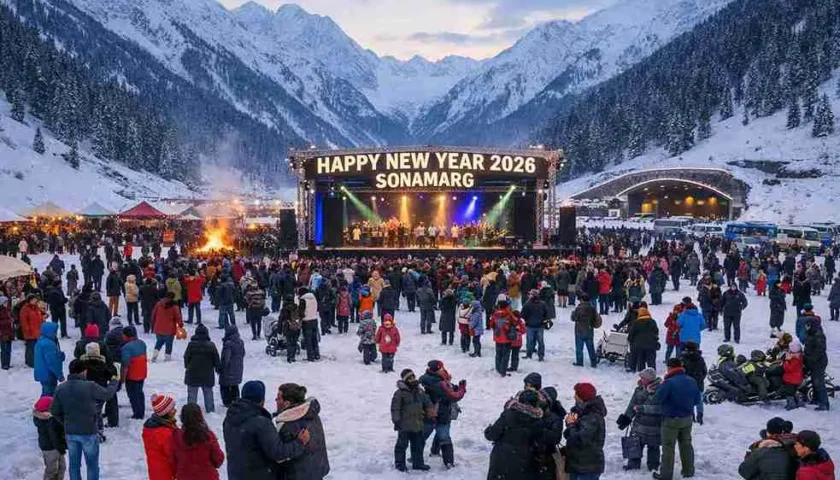Violence and Uncertainty Threaten Investment and Tourism Hopes in Kashmir – A Closer Look at the Impact on Local Business
By: Javid Amin
Kashmir’s breathtaking landscapes and rich culture have long attracted travelers and investors alike, establishing tourism as a critical pillar of its economy. However, recent instability and violence have severely impacted this essential industry, leaving local businesses to face unprecedented challenges. The ripple effects are widely felt, from the bustling streets of Srinagar to the serene resorts of Gulmarg.

This article explores the effect of the unrest on Kashmir’s tourism sector and broader business landscape, shedding light on the experiences of local entrepreneurs, hoteliers, and transport providers. For Javid Amin, Managing Director of JKL Travels, the current climate signals a serious threat to the region’s fragile economic revival. With mounting cancellations and a tourism season in disarray, Amin’s story underscores the immense stakes for Kashmir’s business community.
Also Read | Celebrate Love in Kashmir: The Ultimate Wedding Destination
Tourism in Kashmir: A Vital Yet Fragile Industry
For decades, Kashmir has been a top travel destination, renowned for its stunning Himalayan landscapes, vibrant markets, cultural landmarks, and serene lakes. Tourism provides livelihood opportunities for thousands of Kashmiris, from hoteliers and shopkeepers to artisans and transport operators. A steady flow of domestic and international travelers has historically fueled the economy and given hope to countless families across the region.
The Economic Value of Tourism in Kashmir
- Job Creation: Tourism supports jobs in hospitality, food services, transportation, and handicrafts, forming the backbone of the regional economy.
- Seasonal Peaks and Stability: Peak travel seasons—summer, autumn, and winter holidays—inject vital income into local businesses and allow them to endure quieter months.
- Cultural Exchange and Growth: Tourism not only fuels the economy but fosters cultural exchange, allowing visitors to appreciate Kashmir’s unique heritage and traditions.
Also Read | Diwali Delights Await You in Kashmir—Book Your Dream Escape!
The Ripple Effects of Violence on Tourism
Unfortunately, Kashmir’s tourism sector has faced an array of disruptions over recent years, ranging from natural disasters to political tensions. In the past year, however, the rise in militant activity has led to an exceptional wave of uncertainty.
Mass Cancellations Amid Rising Instability
According to industry figures, recent incidents have led to mass cancellations across the board. Javid Amin, the Managing Director of JKL Travels, shared his perspective on this disturbing trend: “Most properties are on the verge of closure, and the transportation sector is virtually dead.” The tourism sector is highly sensitive to shifts in public perception, and even a few incidents can lead to cascading effects. For Amin and others in the industry, the challenge is not just convincing tourists of their safety but grappling with widespread cancellations that ripple through every part of the business.
The Role of the Amarnath Yatra and Election Periods
Traditionally, events like the Amarnath Yatra, a significant pilgrimage season, draw thousands of visitors each year. This season, however, witnessed a decline as security concerns mounted, leading to a sharp dip in travelers. Election periods have also brought additional uncertainty, prompting both government advisories and travel hesitations.
For JKL Travels, this translated into weeks of lost bookings, frustrated customers, and minimal revenue. As Amin explains, “The recent surge in violence has amplified our losses, affecting not only our company but our network of local partners who depend on tourism.”
Also Read | From Snow-Capped Peaks to Serene Lakes: Plan Your Dream Honeymoon in Kashmir
Direct Impacts on Local Businesses and Daily Operations
1. Hospitality Sector: Hotels, Resorts, and Guesthouses on the Brink
Kashmir’s hospitality sector is bearing the brunt of these impacts. Numerous hotels, resorts, and guesthouses—often fully booked during the peak seasons—now stand mostly empty. With occupancy rates plummeting, many properties are struggling to maintain staffing levels and cover operational costs. Several small, family-run guesthouses in particular find themselves on the verge of permanent closure.
2. Transportation: A Sector Paralyzed by Cancellations
The transportation industry in Kashmir, including taxi services, shuttles, and tour buses, has similarly seen a sharp decline in demand. A significant portion of drivers depend exclusively on tourism for their income, which means that canceled trips and tours translate directly into financial strain. “Our transportation sector is virtually dead,” laments Amin, highlighting the industry’s struggle to survive amid mounting cancellations.
3. Handicrafts and Local Markets: Declining Sales and Limited Footfall
One of the defining aspects of Kashmir’s tourism experience is the opportunity to explore traditional handicrafts, from Pashmina shawls to intricate woodwork. Local artisans depend heavily on tourist purchases, which make up a major part of their income. With fewer tourists visiting, local markets face reduced sales, and artisans find themselves with unsold inventory and decreasing revenue.
Also Read | A Dream Honeymoon in Kashmir: Romance, Adventure, and Unforgettable Moments
Long-Term Consequences: Investment Concerns in Kashmir
While the immediate impact of violence is devastating enough, Kashmir’s tourism sector and overall business environment face another pressing issue: a growing concern among investors.
Investment Uncertainty and Business Growth
Many investors who once saw Kashmir as a promising region for growth are now hesitant to commit funds. This hesitation impacts not only tourism but broader sectors such as real estate, infrastructure, and services. The region’s perceived instability discourages both domestic and international investment, which is crucial for long-term growth.
For entrepreneurs like Amin, this means operating with limited resources and constantly adapting to the ebb and flow of tourist interest.
The Dilemma of Small and Medium Enterprises (SMEs)
Small and medium-sized enterprises (SMEs) in Kashmir face an even more challenging landscape. Lacking the financial buffers of larger corporations, SMEs in the tourism sector are particularly vulnerable. Many are forced to downsize or put future expansion plans on hold, creating a cycle of stagnation that threatens long-term recovery.
Resilience Amid Adversity: How Businesses Are Adapting
Despite these challenges, Kashmir’s tourism and business communities are displaying resilience, finding ways to adapt to the current climate. Some are exploring alternative tourism options, such as promoting off-season travel or highlighting less-visited areas within the region to maintain a steady flow of visitors.
Digital Marketing and Remote Bookings
Companies like JKL Travels are turning to digital marketing, using social media to share positive stories and update potential visitors on safety measures. While this can’t replace lost foot traffic, it has helped build a virtual presence and maintain relationships with clients who may return in the future. “We’re doing everything we can to stay visible and assure travelers of a welcoming, safe experience,” Amin explains.
Collaborative Efforts for a United Front
In response to these challenges, local businesses are banding together, working with regional associations to advocate for more effective government intervention and support. A coalition of hoteliers, travel operators, and market vendors are pushing for policies that support small businesses, increase security measures, and actively promote tourism.
Also Read | Beyond Gulmarg Or Pahalgam: Unveiling Kashmir’s Enchanting Summer Paradises
Hope for the Future: What Needs to Change for Sustainable Growth
To secure the future of Kashmir’s tourism sector, it’s essential to create a stable and secure environment. This involves a multi-pronged approach:
- Improved Security Infrastructure: Consistent security policies can help mitigate public fears and allow tourism to thrive.
- Government Support for SMEs: Direct financial assistance, tax relief, and grants could provide struggling businesses with the support they need.
- Sustained Marketing Efforts: Promoting Kashmir as a safe, welcoming destination through campaigns and events could reignite interest among potential travelers.
- Encouraging Domestic Tourism: Focusing on domestic travelers who may feel more comfortable visiting Kashmir can help stabilize the tourism economy.
Bottom-Line: Kashmir’s Tourism Industry at a Crossroads
The current situation presents an immense challenge for Kashmir’s tourism sector, and the path forward is complex. While the difficulties are significant, there remains a sense of hope among local businesses and residents who see tourism as a vital part of Kashmir’s identity and economy.
For Javid Amin and others in the industry, it’s clear that a collective effort is needed to rebuild the industry, restore investor confidence, and reclaim Kashmir’s status as a premier travel destination. By fostering resilience, creativity, and community support, Kashmir can continue to offer its unique charm to travelers worldwide, even amidst the challenges it faces.




